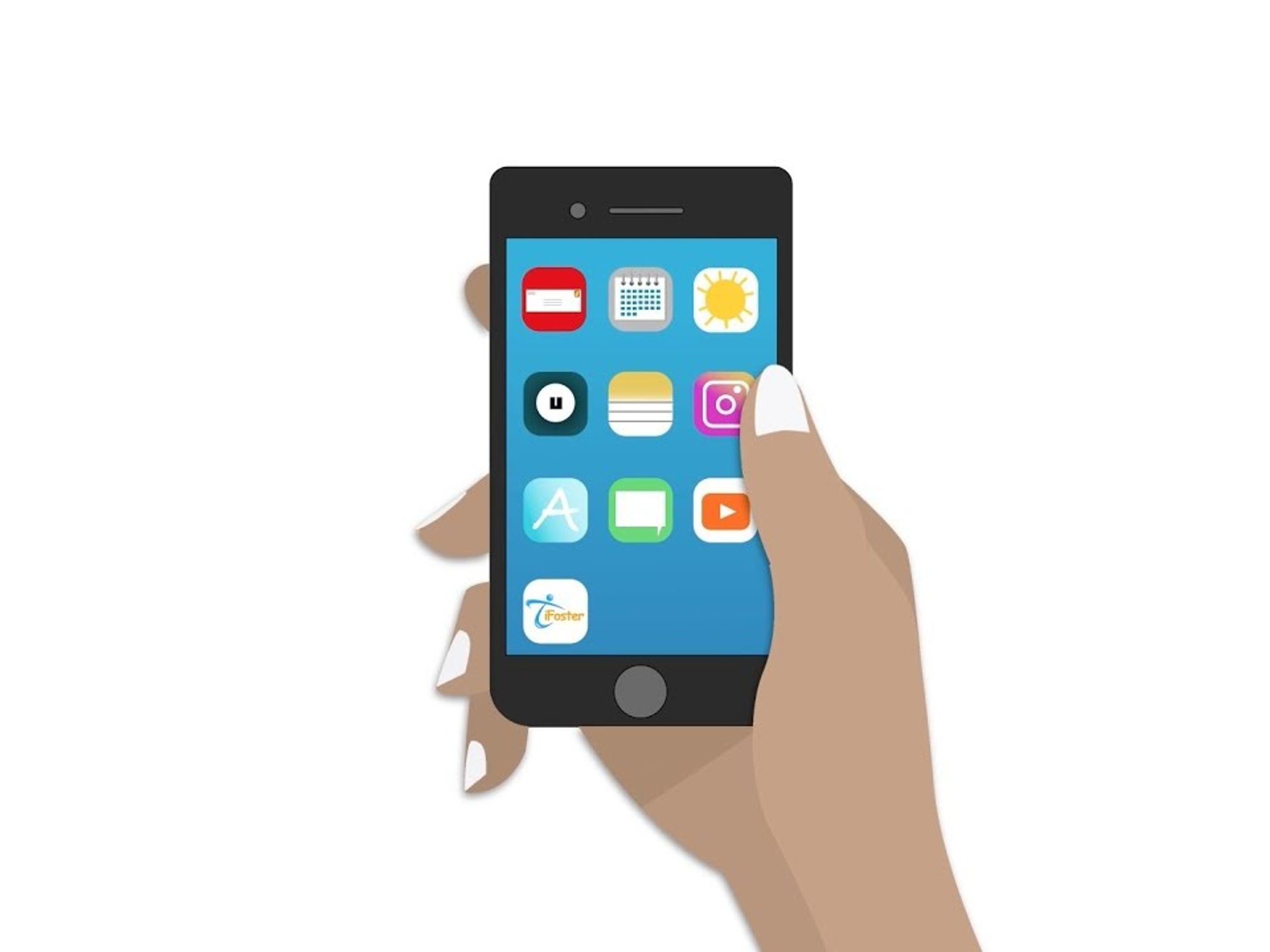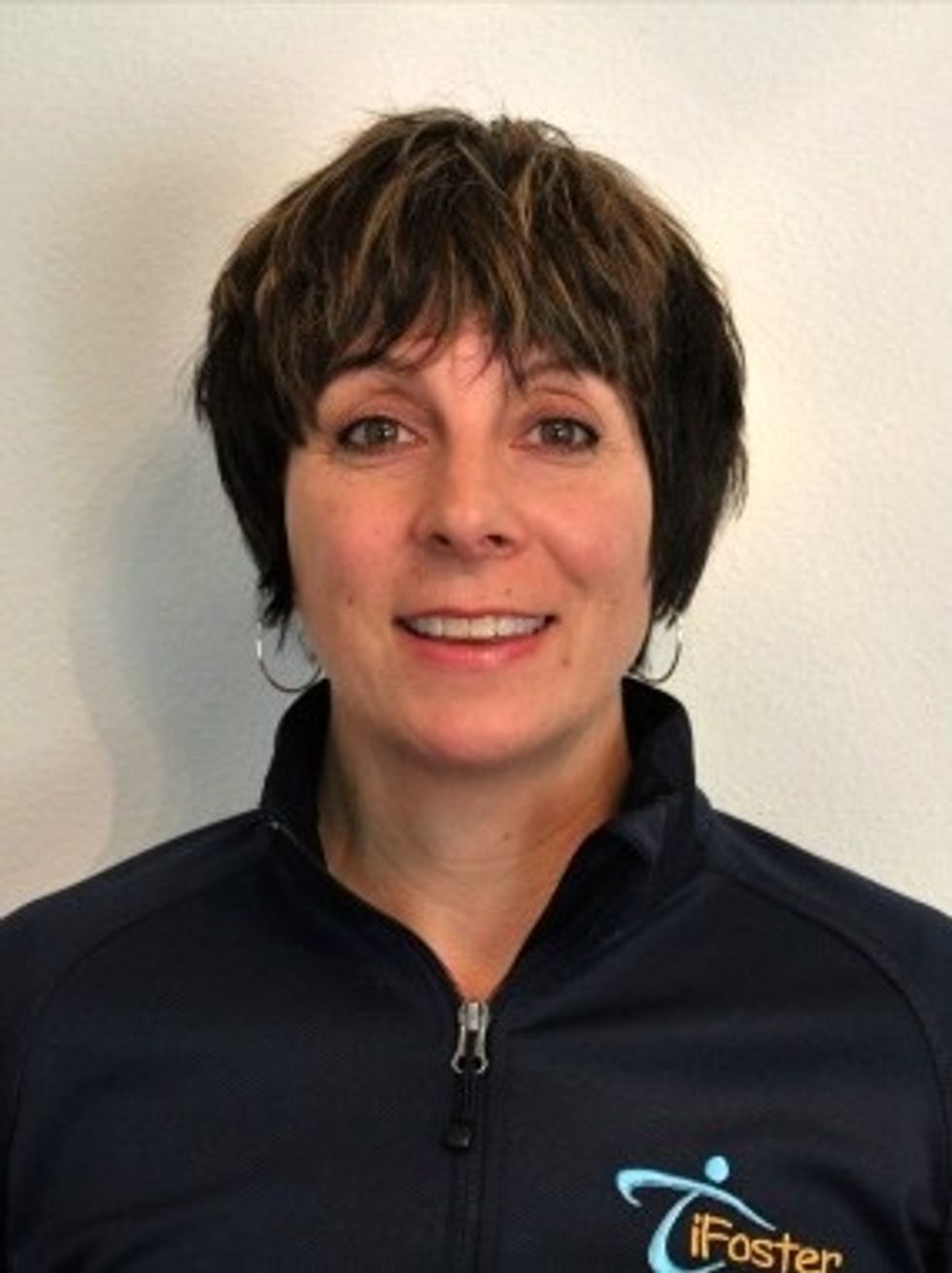Column: How iFoster Helped Save the Semester for College-Bound Foster Youth
Serita Cox is the co-founder and CEO of iFoster, a nonprofit that aims to ensure that every child growing up outside of their biological home has the resources and opportunities they need to become successful, independent adults.

My first indication that COVID-19 was going to dramatically impact foster youth came on March 11 and it came from Los Rios Community College District, the second largest community college district in California, with over 75,000 students. The school sent an emergency email that they would be closing their four colleges and six educational centers, and moving to online classes for the rest of the semester. And they feared that many students, particularly foster youth, did not have the technology (laptops and an Internet connection) to make this change and risked failing their semester.
They were right, based on our experience of more than 10 years trying to connect youth in care to the things they need to succeed in school and in the workplace. In 2016, iFoster participated in a University of Southern California study that found that 95% of rural foster youth, and 79% of urban foster youth, did not have access to a computer and the internet where they live. Up until now, technology access was viewed as a "nice to have," but not necessary for foster youth to function in today's society.
March 11 changed that. Los Rios' email brought into stark focus that the relatively few foster youth who made it to college were at risk of failing and dropping out because they lacked the tools they needed. With only 8% of foster youth ever achieving a college degree, losing even one due to our failure to adequately provide for them is a travesty. We had to act.

iFoster co-founder and CEO Serita Cox
Photo: iFoster
In the 11 weeks of sheltering in place that soon followed, iFoster, John Burton Advocates for Youth, and the California Foster Youth Ombudsman's Office ran point on a mission to keep those youth connected, literally and figuratively. It involved almost 700 organizations and child welfare agencies, and resulted in the procurement and distribution of 6,630 smartphones and laptops.
This is the short version of how it all happened, and I hope it helps folks in other states plan for similar efforts this fall. If this can be done during stay-at-home orders in the country's most populous state, it can be done in any state, county or locality.
By the end of the day on March 11, we had the foundation of a plan figured out. We needed to start identifying college foster youth who needed the technology to survive academically, and then we needed to figure out how to pay for and actually acquire the phones and laptops, at a time when the demand for these was surging with every student in America basically learning from home.
The next day brought two big wins for this operation. First, California Community Colleges Chancellor's Office sent out directions to their 115 colleges that their foster youth would get the technology they need, and asked the administrations on those campuses to start getting rough estimates together for how many students qualified. This was the first of several key outreach efforts the got the ball rolling to actually define the universe of need.
Second, the philanthropic sector quickly got the importance of the goal here. Long-term funders of iFoster's digital divide programming – Foster Care Counts, Walter S. Johnson and Ticket to Dream – stepped up with the California Community Colleges Chancellor's Office, John Burton Advocates for Youth, California Wellness Foundation, LA Tech, Foundation for Community Colleges, Tipping Point, and a generous anonymous donor. These early investments were followed by an executive order from the Governor of California and public funding from California Department of Social Services
By March 13, initial forecasts started pouring in from community colleges across the state. On March 16, the first specific requests identifying individual foster youth students and their needs came in. Before the first schools closed, laptops and smartphones for foster youth began arriving on college campuses for distribution. All of this happened prior to the statewide shelter-in-place order issued by Gov. Gavin Newsom on March 19.
But many schools had already sent students home, and foster youth around the state were left to frantically figure out how to remain in class remotely and from afar. We needed to build a massive outreach machine that could through sheer volume find most of the youth in need around the state.

Key foster care organizations in California have been sharing resources and partnering on programs for years across child welfare, K-12 education and college. It was this foundation that was able to immediately react and invite new partners to the table to implement a plan.
College foster youth support programs like Guardian Scholars reached out to their students to identify need. County child welfare departments, including the Los Angeles County Department of Children and Family Services, tasked their county social workers and probation officers to review their caseloads and find out which of their youth needed tech. Foster care liaisons at school districts across the state did the same, as did foster family organizations, court appointed special advocates, transitional housing providers and independent living programs.
With the process of finding recipients underway and financial commitments lined up from foundations, corporations and eventually the state, we then had to go and acquire the phones and laptops. And with demand for these products skyrocketing because of school closures, this is where California's existing infrastructure for connecting foster youth to technology paid off.
iFoster has provided over 6,000 laptops to foster youth since 2012 funded by very committed philanthropy. In the fall of 2019, just prior to the pandemic, iFoster launched a pilot program with the California Public Utilities Commission to provide all current and former foster youth between 13 and 26 with a smartphone that included unlimited voice, text and data that operates as an internet hotspot.
Having those types of arrangements was critical to mobilizing in an emergency. We did not have to cold call on manufacturers to source and ship laptops and phones – we already know and work with some. We did not have to completely invent pots of funding – we could augment ones that already existed.
It was this combination of having an existing collaboration, as well as scalable iFoster laptop and internet programs, that allowed California to respond so quickly to the connectivity needs of foster youth when the pandemic hit.
While outreach took an army of thousands, the process of getting the right technology to each youth was centralized at iFoster. We are a small virtual organization of nine employees, and we had to staff up quickly.
Year two of our "TAY AmeriCorps program" – where we train and hire current and former foster youth to be peer resource navigators to other foster youth – was scheduled to start in March. We brought on 25 foster youth in the Bay Area and Los Angeles who we felt could work effectively from their homes.

We work in teams. Our bilingual intake team answers phone, text and emails requests and ensures that every application has all the information required for approval. They hand off to our VAT team (verification, activation and tracking), which ensures there is no duplication in requests and validates with each youth or their caregiver the tech they need and their shipping address.
As foster youth move frequently, ordering and shipping devices happen within one business day of validation. Our ordering team works closely with our third party logistic company, Rakuten Super Logistics, who fulfills and ships orders. Rakuten manages inventory, order priority and shipping flow.
Phones require activation on the Boost telecom network, so our VAT team work feverishly to activate phones once they ship to ensure that every phone is ready to go when a foster youth receives them. Finally, our VAT team follows up with every recipient to provide shipping and tracking information and to ensure that every youth knows who to contact if they have any issues with their tech or with any other resources they may need.
Clear roles, responsibilities and standard operating procedures are critical. However, it is the dedication of a team of transition-age foster youth and their supervisors managing them virtually that make this work.
All told, this was a collaboration of 686 partners that included the state, 50 county child welfare departments, thousands of child welfare workers, college support teams, caregivers, mentors and foster youth themselves. We have collectively proven that bridging the digital divide for foster youth is a solvable problem, and one that can be replicated, before distance learning starts again this fall.

For those interested in stealing our playbook, I sincerely hope you do! We are planning to produce a more formal how-to guide on the project soon. But in terms of top-line recommendations, here are the four things to focus on…
Build off philanthropy: In this crisis, the first and fastest funding came from philanthropy. However, to achieve scale, sustainable funding must come from the public sector.
Diverse network to identify demand: Understanding who needs what is not an easy task. There is no centralized data system that tracks foster youth tech needs. However, every foster youth has their own support network they rely on.
Unlimited Data is Key: The phones and laptops are only as valuable as the hotspot. Without that element, it will be hard for many of our foster youth students to connect from where they are.
Centralized Distribution: It took a lot of partners to make this all work, but the actual process of receiving products and sending them out to youth had to be a tight operation with strict procedures in place.
This collaboration continues to grow, with government funding adding to philanthropy. Not only will college foster youth have the technology they need to distance learn for as long as they need, but we are well on our way to ensuring that every high school foster youth will also have the tech they need, and there is every indication that our K-8 foster youth students will as well. As of June 12, this partnership has connected a total of 7,599 foster youth from 51 counties with tech, and we are still serving between 500 and 700 youth every week.
Fall is coming and distance learning will be a reality again. We are confident that other states, counties and localities can replicate what we've accomplished in 11 weeks of COVID.
We at iFoster are here to help. We are willing to provide technical support to any team nationwide who wants to ensure their youth go back to school with the technology they need. We will share our standard operating procedures, documents, templates and provide intros or allow others to leverage the partnerships we have already built to device wholesalers and telecom partners.
This column first appeared in the Chronicle of Social Justice.
Serita Cox is the co-founder and CEO of iFoster, a nonprofit that aims to ensure every child growing up outside of their biological home has the resources and opportunities they need to become successful, independent adults.
- LA-Tech Launches With A New Mission: Survival - dot.LA ›
- L.A. Tech Pivots From Offering Internships to Basic Needs - dot.LA ›
Serita Cox is the co-founder and CEO of iFoster, a nonprofit that aims to ensure that every child growing up outside of their biological home has the resources and opportunities they need to become successful, independent adults.



 Image Source: Valar Atomics
Image Source: Valar Atomics Image Source: Waymo
Image Source: Waymo Image Source: Apple
Image Source: Apple
